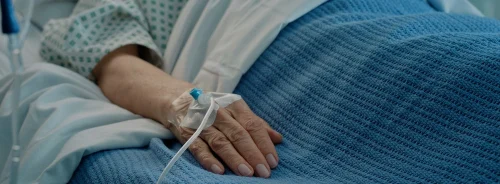ICU Management & Practice, ICU Volume 8 - Issue 1 - Spring 2008
Author
More than 4900 intensive care practitioners converged on Berlin between October 6 and 10, 2007, for the 20th Annual Congress of the European Society of Intensive Care Medicine (ESICM). The congress, which also provided an occasion to celebrate the 25th anniversary of the founding of the society, included a varied programme, ranging from oral and poster presentations of new research to interactive educational sessions to technical sessions sponsored by industry. The Society’s silver anniversary was highlighted by thematic sessions looking at developments in intensive care and by the publication of a book titled 25 Years of Progress and Innovation in Intensive Care Medicine.
Just in the past 10 years, membership in ESICM has increased from 1876 to 4500, and the scope of the annual meeting has grown in parallel (see Box). At the opening session, ESICM President Marco Ranieri stressed that 25 years after its’ founding, the Society is dynamic and alive.
Tackling
a Tough Topic
The Society also showed its willingness to tackle controversial issues with a keynote address on the topic “Conflict of Interest”, delivered at Sunday’s opening session by Jukka Takala from Bern, Switzerland.
In recent years there has been much debate over how research is conducted, or should be conducted, and increasingly over how it should not be conducted. Collaboration between medical research and industry is essential, said Dr. Takala, and has produced major advances. Yet research involving major conflicts of interest -- and promotion of drugs by medical professionals with financial stakes in the drugs’ success -- has “badly eroded public trust in medicine and industry” stated Dr. Takala. “Why are conflicts of interest so common, and why are they taken so lightly within the medical community? ” he asked. “Why do we accept or even expect that somebody else pays our lunch, travel, hotel, congress, et cetera?”
It is not immoral or unethical to have a conflict of interest, Dr. Takala said. What is unacceptable is to take inappropriate action as a result of the conflict. Direct financial incentives, vested interests, patents, study designs deviating from common practice, and lack of access to source data are all examples of areas in which the potential for a conflict of interests exists, he said.
How should the issue be addressed? Full disclosure of conflicts is popular because it provides no substantive change, said Dr. Takala. Instead, he made several recommendations: 1) practice guidelines should be developed by experts who do not have conflicts; 2) source data from completed clinical trials should be made available to an external academic coordinating centre for systematic analysis, 3) journals should require statistical confirmation of clinical trial results by external academic sources for all industry-sponsored studies, and 4) research institutesshould require unrestricted access to the trial database and unlimited rights to publish the results.
At the close of the keynote address, ESICM President Ranieri stressed that “the Society is working on these issues, and the clinical community is working on these issues. What is important is that the clinical community is reacting and industry is reacting. All are making an effort to rebalance the system.” Dr. Takala thanked ESICM “for having the guts to bring this difficult issue to the forefront. It’s a bold move,” he said, “and this needs to be done.”
Complete coverage of ESICM’s Silver Anniversary congress is available at www.esicm.org (Congresses/Annual congress/Past ESICM congresses).





